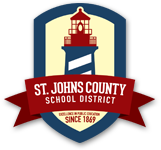Illness Guidelines
When a child is sick and needs to stay home, parents should contact the school and describe the illness and symptoms. If a medical provider makes a specific diagnosis (such as strep throat, conjunctivitis or chicken pox), let school staff know.
Deciding when to keep your child home from school can be difficult. Here are some guidelines when a child should stay home:
- Fever of 100.4 or greater
- Chills
- General tiredness or not feeling good
- Frequent congested (wet) or croup-sounding cough
- Lots of nasal congestion with frequent blowing of nose
- Vomiting (even just once)
- Diarrhea
- Stomach pain that is accompanied by repeated vomiting or diarrhea. Note: if you child complains of stomach pain for several days, your should call your doctor for advice.
- Symptoms of cold or flu
The two biggest factors when deciding whether a child can attend school is whether he or she is well enough to take part in activities and whether the child’s condition will require more attention from teachers or staff than is possible.
Health Services Illness Guidelines
Prevention Guidelines
Hand Washing
Washing your hands is the most significant step for preventing the spread of germs and illness. Here are some important instances when to wash your hands to help control the spread of illness:
- Before you eat
- After using the bathroom
- After coughing or sneezing
- When your hands are dirty
- Before, after, and during preparing food
- After petting an animal
If you do not wash your hands frequently, you pick up germs from other sources then infect yourself when you:
- Touch your eyes
- Or your nose
- Or your mouth
The correct way to wash your hand is:
- First wet your hands and apply soap.
- Next rub your soapy hands together for 20 seconds (about the time it takes to sign the ABC song or Happy Birthday song).
- Make sure both sides of your hand are covered in soap. Don’t forget to scrub fingertips and between fingers.
- Rinse well and dry your hands.
Hand Washing Step-by-Step poster
Covering Your Cough
It is important to always cover your mouth when you cough to help stop the spread of germs. The Centers for Disease Control and Prevention (CDC) advise:
- Cover your mouth and nose with a tissue when you cough or sneeze.
- Put your used tissue in the waste basket.
- If you don’t have a tissue, cough or sneeze into your upper sleeve or elbow, not your hands.
- Wash your hands often with soap and warm water for 20 seconds.
Flu Season
It is important that we work together to keep our children and school healthy. Protect yourself and others by following these simple steps:
- Wash your hands often with soap and warm water for at least 20 seconds to help prevent germs from spreading.
- Avoid touching your eyes, nose and mouth because the virus can spread when your hands touch surfaces that are infested with germs.
- Cover your mouth and nose with a tissue when coughing and sneezing and throw away your used tissues, or cough or sneeze into your elbow.
- Don’t share drinks, water bottles, eating utensils, cell phones with friends.
The flu is not a cold. If you have a stuffy nose, sneezing, sore throat and a hacking cough, you probably have a COLD. If you have a high fever, severe headache, muscle and body aches, extreme tiredness and a dry cough, you probably have the FLU.
If you think you might have the flu while at school, visit your school nurse. Together, you can discuss your symptoms. If the nurse thinks you could possibly have the flu, she can notify your parents and request that you see a doctor.
Head Lice Procedure, Treatment and Prevention
Head lice can be picked up anywhere in the community if there is direct contact with an infested person or their combs, brushes, hats, hair ribbons, scarves, etc. Shared pillowcases or towels can also be a source. Check your children frequently. Be aware of who their playmates are, whose homes they visit and who visits your home. Remember, anyone can get lice.
Students infected with head lice shall not be allowed in school until all signs of lice and nits are gone. The school nurse or personnel in the Student Services Department shall contact the student’s parent(s) or legal guardian when a student misses three (3) or more school days for one (1) incidence of head lice. Readmission to school shall require:
(a) An examination by properly trained personnel, designated by the school principal, to determine if the student may return to school.
Head Lice Information for Parent/Guardian
“Spill the Water” – Mosquito Prevention
To help prevent infection and to reduce the spread of mosquito-borne diseases, it is important for kids and parents to practice basic mosquito bit prevention. Click on the following link to find information for parents and school-age children on mosquito prevention:
Florida Department of Health – “Spill the Water”


